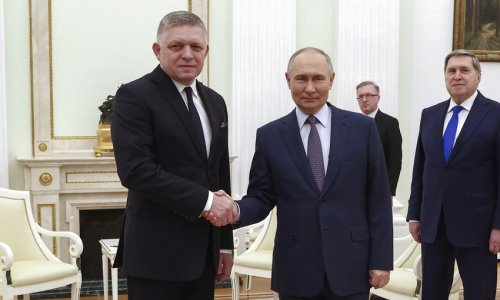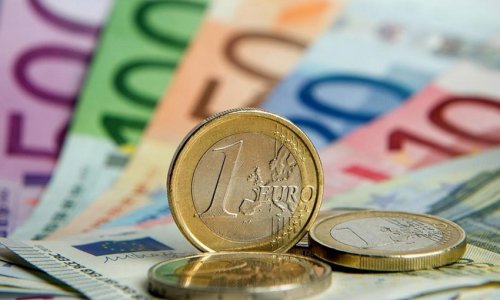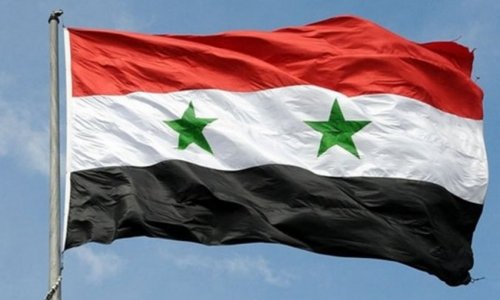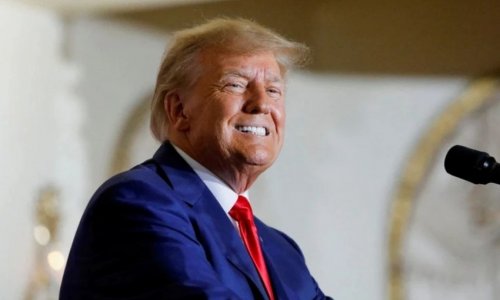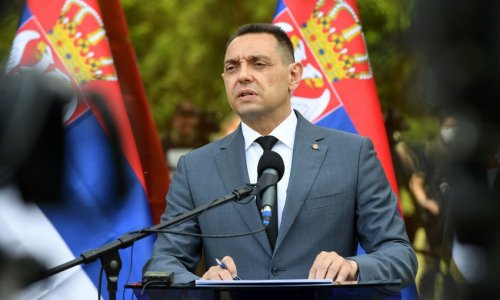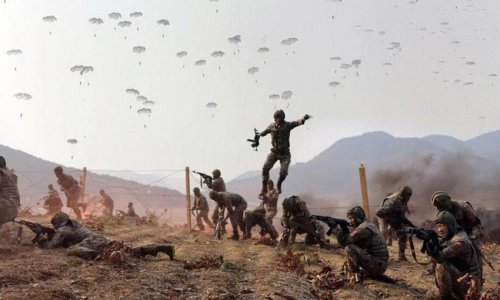First, he asked us whether we knew how to handle weapons. He warned us that we would be going to [the eastern Ukrainian city of] Slavyansk, that we were heading to certain death, that the punishment for looting was execution on the spot, which, by the way, I saw was true several times while I was in Ukraine. Two men immediately walked away.Did they promise you money?They didn't promise a per diem or payment. Only free food, clothing, weapons, and a guarantee that they would transport our bodies to Rostov-on-Don and give them to our relatives. If, of course, they found them. They insisted that we destroy all our online accounts and, in general, remove any personal information from social networks. I deleted my accounts on [Russian social-media sites] Vkontakte and Odnoklassniki.How did you get to the Ukrainian border?On the morning of 12 May, the group got into two cars and headed south. It took about 24 hours to get to Rostov. It turned out that the drivers were also volunteers. One of them, by the way, was killed. They took us to a camp – some small homes near a creek and a forest – I don't know where. They took away all our road maps. Our telephones and other personal things were logged and taken away. We changed into clothes they gave us.How long were you at this camp?Nearly two weeks. Every day, more and more new people came. By the end, there were about 100 of us. We didn't rest at all; it was a military schedule. We got up, we went for a run, we had breakfast, we had training, we did orienteering in the fields, in the forest. We learned the hand signals.What do you mean, hand signals?They taught us to communicate using gestures and signs in order to recognise each other, to communicate silently at night, to give commands like back, forward, stop, get down, danger, and so on. Now I can speak with my hands like a deaf person. All this was taught by an instructor in civilian clothes. He, like all the other big and small bosses, didn't give his name. We didn't even know one another's real names, just nicknames. Even now I don't know the names of most of the guys who were killed beside me in that hell.Did you have any combat experience before Ukraine? You were in the breakaway Azerbaijani region of Nagorno-Karabakh...Mostly we just had some exchanges of fire, automatic weapons or grenade launchers. In short, it was a low-level war of positioning. Nonetheless, I knew more about war than most of the guys there.Were there Russian nationalists among them?I didn't see any nationalists, although most of the guys there were Slavs. Whether they were Belarusians, Russians, or Ukrainian, I can't say. They were good, patriotic guys. None of them looked at me funny because I'm Armenian.There were a bunch of guys from the Caucasus, some Armenians from Krasnodar and [the Ukrainian city of] Kryvyi Rih. Some Chechens came a little later. I became friends with a few – one guy named Red and another named Small. Both of them were killed in those KamAZ trucks.How did you cross the border?Near midnight on 23 May we left the base, about 100 guys in KamAZ trucks. We were accompanied by a guide in a Niva [Russian-made jeep]. We rode for several hours and stopped at the border. There we joined up with another 50 guys from other camps and we were given our weapons: grenade launchers, automatic rifles, pistols, and grenades. Then we got back into the trucks.Did they teach you to shoot?Some of the guys knew how to fire grenade launchers. I was made the commander of a machine-gun squad of from three to six guys. They gave me that job after looking over my military-service document. I guess there are some numerical codes there that I never noticed before. When they called me, they asked me to read the code. So they knew how to use my training. Apparently they worked separately with everyone like that.What do you mean "they"? Were they Federal Security Service, military intelligence (GRU), Interior Ministry? Who were these people who met you, trained you, crossed the border with you?I don't know their names, even their first names. They looked like Slavs. They were all in civilian clothes. I don't even remember their faces.When did you cross the border?It was around dawn on 24 May. On the Ukrainian side, we were met by some high-level representatives of the [self-proclaimed] Donetsk People's Republic. They had taken over some military base in Donetsk and they put us up in a barracks there. We slept the whole day. Then we washed up, got ourselves in order.The next day, 25 May, we took part in the well-known parade in the city in our KamAZ trucks – the one that the Chechens made famous. They gave interviews, fired their weapons into the air, posed for the cameras. People were cheering and they greeted the volunteers from Russia like liberators. In the evening, we returned to our barracks.And when did you first see combat?They sounded the alarm on the night of 25-26 May. There were three guys in my group, from Moscow, Lipetsk, and Chukotka. They were all killed. We were put in civilian buses and taken to the airport. All 100 of us went into the building and there we joined up with some Ossetians. The passengers were quickly evacuated, but employees remained at their posts. In the morning, two planes landed and we didn't interfere with the work of the airport. The building was quickly taken under control.We positioned ourselves on every floor. My assistant and I were on the seventh floor – the roof. We were ordered to cover a high area about half a kilometre away so that no one else could be there. We set up a machine gun.What was the point of seizing a civilian airport in Donetsk? The fighting at that time was in a completely different place, near Slavyansk.To prevent them from sending in troops from Kiev. They told us no one would fire at us. Just pose for the cameras and that's all. They would see us, get scared, give up. We'd disarm everyone and send them home. The airport would be ours.Who do you mean?The Ukrainian troops around the airport. There was gossip that supposedly we were so tough and everyone was afraid of us. But it turned out just the opposite.At 2pm the helicopters came. Then the airplanes, and they started bombing the place. I was on the roof and with my aide, I managed to get to the sixth floor. It was a big attack – I counted four helicopters and two planes.Did you have mobile antiaircraft weapons?Our commander from the Vostok battalion [of volunteer fighters from Russia], Alexander Khodakovsky [regional head of the elite Alfa special forces under former Ukrainian President Viktor Yanukovych], told us they wouldn't bomb the airport and that "zenits" [shoulder-launched anti-aircraft weapons] wouldn't be necessary. So we left them at the base. Khodakovsky's snipers were there.There were agents of the Ukrainian SBU Security Service who had come over to the Donetsk People's Republic. They had unusual rifles that I'd never seen before – not Dragunov sniper rifles. They left somewhere at about 1pm and the bombing started at 2pm.What happened on your floor?One Chechen was killed on the roof immediately. Two others were wounded. They fired on the helicopters with everything they had. It took me two or three seconds to get up there. I fired on the high area from where a sniper was shooting at us. They forced us tightly into the building and were bombing from all sides. They had missile launchers around the perimeter of the airport and were firing on the terminal.Khodakovsky naively thought that since the airport was new – just opened for the European soccer championships [in 2012] – they wouldn't use heavy weapons on it. If we had only had our antiaircraft weapons, none of that would have happened.Do you think it was betrayal or incompetence?I don't know. We lost a lot of men. One of the Chechens – a really smart guy –threw a couple of smoke bombs onto the roof and managed to drag his wounded comrades out. We made our way down to the first floor and were just sitting there, waiting to be killed.Spark told me: "If you question the order, I'll shoot you here." I took my weapon and got in.We couldn't go outside. Someone contacted the commander – a guy called Spark – and we were given the order to get into the trucks. It was nearly evening. The trucks were standing inside – in the terminal. I didn't want to get in. I knew how risky it was. Spark told me: "If you question the order, I'll shoot you here." I took my weapon and got in.How many men were in the truck?There were two trucks with about 30-35 men in each one. A covering squad remained in the airport. They went out on foot at night – they all got away. Spark gave the order to drive out of the terminal and to fire in all directions at anything that moved. We lifted the covers – they were open trucks stuffed with volunteers. Our truck flew out of the terminal and we begin to fire on both sides, up in the air, everywhere. We proceeded along a road for about four or five kilometres. The trucks were about 500 or 600 metres apart. Two trucks speeding along, firing without stopping. It was terrifying.It's true that I stopped firing when I saw that there was no one there. When we arrived in the city, we saw that the first truck was standing in the road. I didn't understand what had happened. Cars were driving around it and people were standing around – it was the edge of Donetsk.There were dead and wounded there?We rushed pass at high speed. I didn't manage to look. Someone was still shooting. After about 500 metres, someone fired on our truck with a grenade launcher. The shell landed in the driver's cabin. We thought we'd been lucky, so we jumped out. We got bruised up a little, but no one was hurt. The truck that they hit first got caught in a crossfire from machine guns. There were also snipers firing at them. At least 30 men died there, no fewer.Then they began firing on us too from somewhere. I dropped my weapon and grabbed one wounded guy from Crimea. I loaded him on my back and ran blindly through some yards. Our medic found us. He had a weapon, so I took it and started firing in all directions, up onto the roofs. And I ran further with the wounded guy.Did you know who controlled the city?We were sure the city had been taken by the National Guard and that they were looking for us. We came to an ambulance depot and I fired toward the roof a couple of times to attract their attention. My comrade was bleeding badly. He'd been shot in the arm and the leg. I shouted to the medics: "Save him! Help!" A woman shouted back: "Don't worry, we are on your side!" We put the Crimean into an ambulance and they took him to a hospital. I told them where the trucks were and six ambulances rushed out. Soon they were bringing guys from the trucks to the hospital.Someone told me that only three guys survived from the first truck. There was panic and terror. Someone told me that one guy blew himself up with a grenade to avoid being taken prisoner by the Ukrainians. They didn't understand that they were being attacked by their own people. Someone apparently told local militiamen that Right Sector [a Ukrainian nationalist group that was part of the Maidan protest movement] fighters were rushing down the highway in two trucks.What was the official story?On television they said something like the militias were transporting unarmed wounded under the sign of the red cross and Ukrainian forces fired on them. At that point, I still didn't know we'd been attacked by our own forces. I was sure it was the National Guard. Sometime in the morning of the 27th, two guys from the cover group that remained at the airport woke me up. They told me that it was friendly fire.We were asking what to do next. We decided to run away during the night, secretly, on foot, back to the border and to Russia. We found some civilian clothes, changed into them, took some backpacks and left the unit. There was a driver with us who went by "Shumakher." He told us that he had an uncle outside of Donetsk. Six of us arrived at this private house to spend the night. On the morning of the 28th, we heard shouts from a neighbouring house: "Don't shoot! Don't kill us!" It turned out they sent a squad out after us.How did they find you?I don't know. Maybe someone gave us away. We threw away our packs and other things and ran off again. We were just wandering around the streets without any money or documents. We came to a town and a checkpoint and told them our story. They took us from the checkpoint to Horlivka [a city in eastern Ukraine's Donetsk Oblast] to a commander by the name of "Devil." But that's a different story.Why did you spend two weeks with "Devil"?We didn't have any choice. I didn't know how to get away. Devil turned out to be a normal guy, a professional soldier from Horlivka. He promised to send us back to Russia at the first opportunity. All five of us stayed with him. We told them what had happened to us, and he said he wouldn't turn us over to the "easterners." He left us alone. Later, if anyone wanted to fight some more, they stayed. But I left.What did you do in Horlivka from 28 May until 15 June?I put on a uniform again. We were given weapons and took part in several operations. They were better organised, more systematic. We carried out some diversions – snuck around, blew something up, snuck away. We blew up a Ukrainian fuelling post in Dokuchayevsk. We snuck in quietly during the night in civilian cars. I covered the position with a machine gun and they blew up the post with a grenade launcher.Why did you blow up the fuel depot?So they couldn't gas up their tanks and trucks.But didn't you need fuel?We didn't have any vehicles. Stuff like that only appeared among the militias about three days after I left.What stories on television that you've seen strike you as the most outrageous and disturbing?When they do interviews with people from the Donetsk People's Republic [DNR in Russian]. The DNR is really a fiction. The DNR, as I understand it, exists only in the offices of [self-proclaimed DNR Prime Minister Alexander] Borodai, [self-proclaimed DNR parliament speaker Denis] Pushilin, [former Ukrainian parliament deputy Oleh] Tsaryov. But decisions are made somewhere else and by other people.Journalists who have been in the region say that about 20% of those fighting are Russians and the other 80% are local militiasI'd say exactly the opposite. Most of them are Russians, Chechens, Ingush. There are also Armenians like me. I spoke to some locals and they say that they did what they'd been told. I said, "What did they tell you to do?" They answered: "We voted. The rest is up to you." That is, they participated in the referendum on DNR independence but they don't intend to fight. One guy told me, "I want to get my pay and then drink until my next payday." In general, they have no experience. Don't know how to handle weapons. No one had been in the military. I'm talking about in Donetsk.And in Horlivka?There, it is about 50-50. But the Russians fight better. They are people who have been in the military. It is a real army – Ukraine hasn't [really] had an army for 23 years.Why are you telling us all this?Until now, the people who – basically – betrayed us (what happened at the airport could have been avoided and everything could have been different if they had organised it right) are still giving orders, and volunteers from Russia are still going to serve with them. I want these people to understand who is going to be commanding them. I went. I survived by a miracle. I feel sorry for them. They are on their way to serve such commanders as Khodakovsky and others. I don't know all their names.How did you get back to Russia?Devil kept his word. He thanked us, gave us each 1,000 hryvnyas for the road, wished us luck, and sent us home. Three guys came with me. One who was wounded and two others. We rode in civilian cars through Luhansk Oblast, avoiding the customs point, about 150 kilometres. We were met on the Russian side and they took us to Rostov. We ended up at the same base where we'd been trained. They gave us back our clothes, documents, telephones, some money for the road, and sent us home.You are a citizen of Armenia, from another country....I even fought under the Armenian flag. I have photos.Why would you be willing to die for a foreign country?I don't consider Russia a foreign country. I have the mentality of a Soviet person. My grandfathers fought for the Soviet Union and I am fighting for it. I don't consider Russia a foreign country.(theguardian.com)Bakudaily.az
Armenian man: 'I was a separatist fighter in Ukraine'
World
15:00 | 16.07.2014
Armenian man: 'I was a separatist fighter in Ukraine'
About 10 guys showed up at a meeting somewhere near VDNKh [the All-Russian Exhibition Centre in northern Moscow]. We spoke in the entrance arch of a residential building there. A Slavic man in civilian clothes who didn't give his name met with us.
Follow us !

